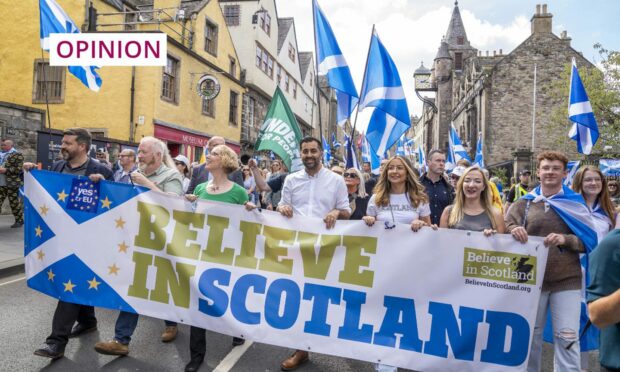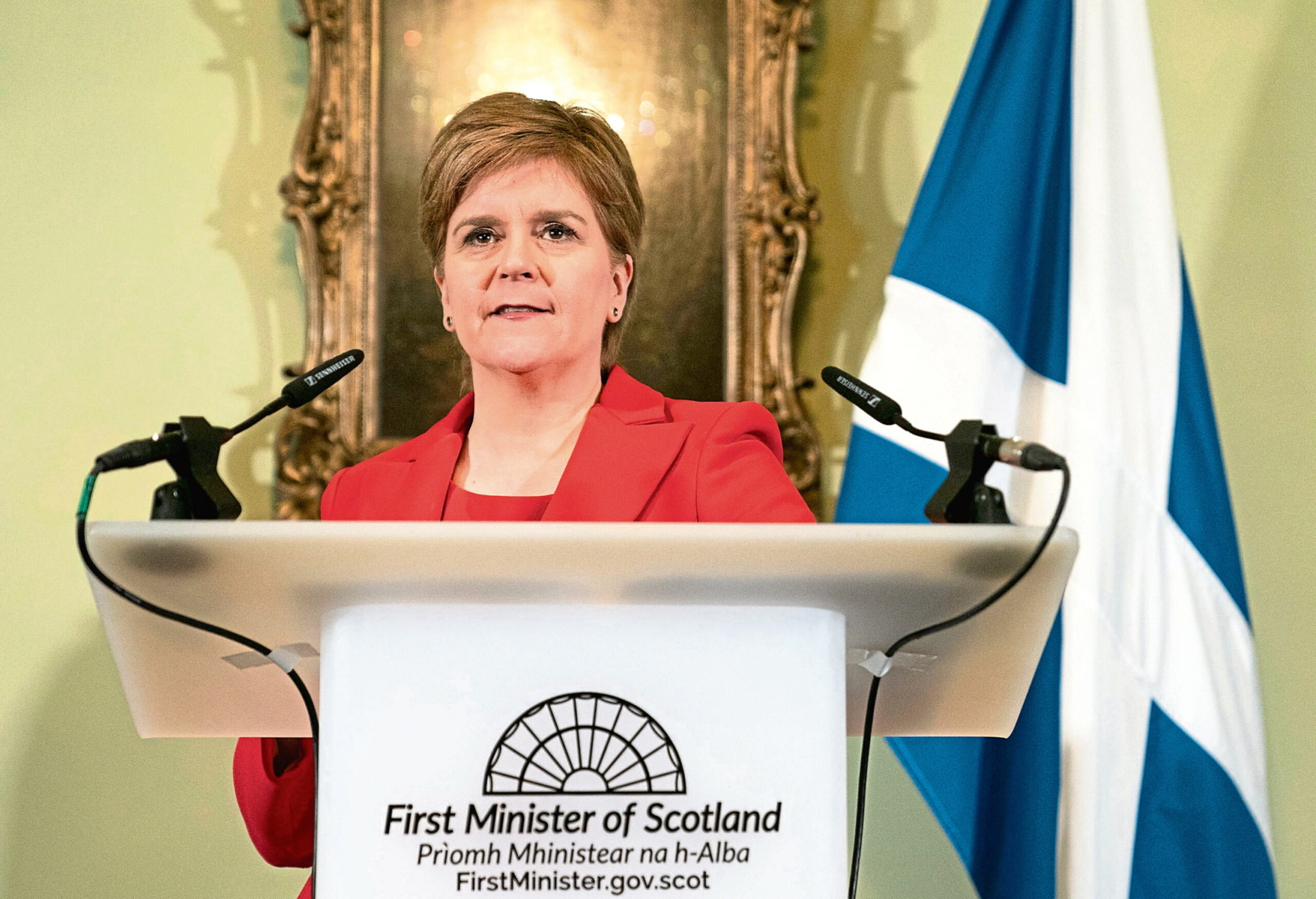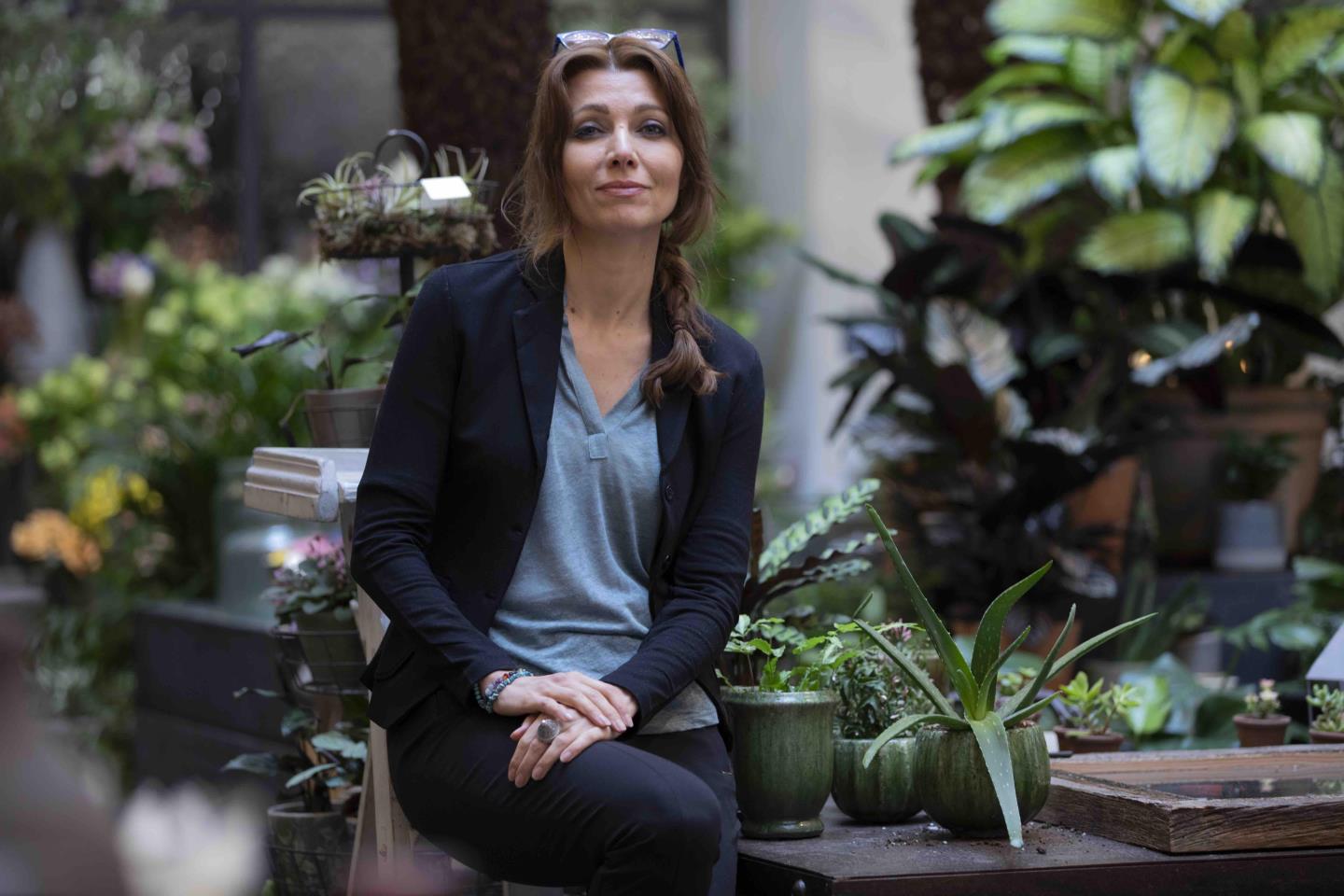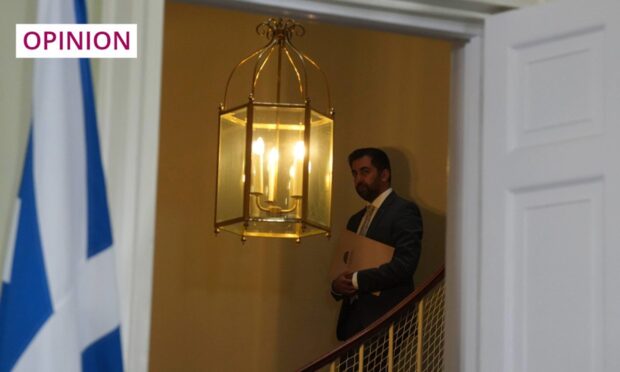Humza Yousaf started this month trying to recapture the spirit of 2014 by leading a Saltire-festooned march for independence in Edinburgh.
The following week, Nicola Sturgeon made her first speech at Holyrood since stepping down from the top job, using her time partly to lament “the state of our political discourse”, and outlining her concerns that polarisation in politics has put a brake on progress. She finished by calling for a “more mature debate”.
Observing these events, I wondered if Yousaf or Sturgeon had contemplated the possibility that they could be linked. Did it occur to them that there might be a correlation between flag-waving marches and the intolerance and dysfunction Sturgeon was complaining about?
Think about the policy areas in which stasis is especially prevalent. They tend to be ones at the mercy of culture wars. The debate on gender recognition reform is a prime example. It is frozen, with the loudest voices on both sides seemingly determined to win the argument by proving their opponents are malign actors driven by hatred. Surely at some point my opponents will simply realise how horrible they are and cave in or go away, right? Wrong. Positions have hardened and public discourse has become toxic.
What Yousaf and Sturgeon fail to acknowledge, or perhaps even to understand, is that politics in Scotland has been at the mercy of another culture war over these last 10 years – a national identity culture war, where asserting Scottish identity and rejecting British identity is pushed as a moral imperative for political ends.
Scotland’s culture war is uniquely toxic
It runs like this. There are two cultural groupings in Scotland: nationalists and unionists. Nationalist equates with being Scottish, which equates with being good. Unionist equates with being British, which equates with being bad.
Yousaf’s presence at the march made him complicit in stoking this culture war. Far from being an innocent celebration of an inclusive culture, the sea of flags was an exclusive assertion of ownership. Scottish culture is nationalist culture, and if you want to be Scottish – and who wouldn’t want to be when this identity corresponds with virtue? – then you must embrace that nationalism. Those of us who refuse the embrace are naturally then viewed as suspect.
As with all culture wars, the aim is to make the other side appear, and feel, culturally toxic, such that no right-minded person will want to be part of it. The longer-term goal is for in-group versus out-group psychology to lead to victory for the culturally dominant side. It is an approach to politics rooted in identity and tribalism. It takes division beyond the usual cut-and-thrust of ideological differences into the realms of a sectarian-style split. It is uniquely toxic.
Certain groups benefit, and even profit, from stirring up the culture war. Scotland now has a newspaper, The National, whose business model depends on fermenting the nationalist-versus-unionist divide. It regularly frames its articles in terms of the battle of national identities and, as Fox News does with US culture-war splits, monetises the resulting acrimony. Our national identity culture war also helps maintain popular support for the SNP.
We ‘don’t need nationalism to love our roots’
If Nicola Sturgeon is serious about detoxifying Scottish politics then she should work to stop national identity being weaponised in support of her cause. She should ask Humza Yousaf to ensure that the party takes a tough line with members who accuse opponents of being traitors or anti-Scottish – and perhaps suggest he stays away from rallies headlined “Believe in Scotland” which, by implication, suggests opponents lack faith in their nation. She should promote discourse rooted firmly in policy, never in patriotism.
She might also work to change the culture in the SNP, to separate the personal from the political. Not long after the independence referendum, polling of political party members revealed an unusual trait amongst SNP members. When pollsters asked supporters if they agreed that “when people criticise my party, it feels like a personal insult”, over 50% of SNP supporters said yes, whereas the traditional mainstream parties registered in the 20-30% range. This finding was, we can now see, a warning.
I understand Sturgeon is a fan of the writer Elif Shafak, the Turkish-British novelist who has written extensively on nationalism. Perhaps the former first minister and her colleagues can come to respect those of us who, like Shafak, “don’t need nationalism to love our roots”. Maybe they can appreciate that many of us are fathers and sons, sisters, friends, workers, colleagues and more before being Scottish or British. “I contain multitudes,” as another writer, Walt Whitman, once wrote.
Improving our politics starts with ending our peculiar culture war. If you are of a mind to go on a political demonstration then best to leave that national flag at home. It’s what a patriot would do.
John Ferry is a regular commentator on Scottish politics and economics, a contributor to think tank These Islands, and finance spokesperson for the Scottish Liberal Democrats












